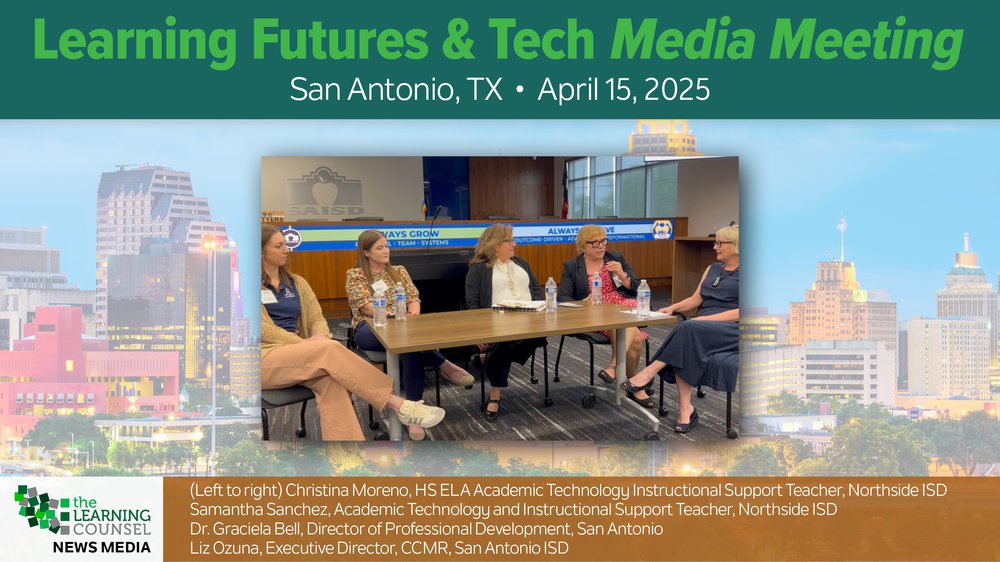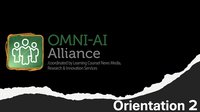At the Learning Counsel Learning Futures & Tech Media Meeting hosted by San Antonio ISD, a powerful educator panel offered insight into how schools are evolving to meet the needs of modern learners—through real-world experiences, teacher development, AI integration, and a growing focus on student voice. Moderated by Learning Counsel CEO LeiLani Cauthen, the panel included influential education leaders: Liz Ozuna, Executive Director of College, Career, and Military Readiness (CCMR) at San Antonio ISD; Dr. Graciela Bell, Director of Professional Development at SAISD; and Samantha Sanchez and Christina Moreno, Academic Technology and Instructional Support Teachers at Northside ISD.
Cauthen began the discussion with a simple but meaningful question: “What are you most proud of?”
Liz Ozuna reflected on a decade of progress in preparing students for life after high school. “I’ve seen an increase in real-world opportunities—our P-TECH programs, students earning college credit, and a surge in work-based learning,” she said. These opportunities, she noted, help students make informed decisions about their futures: “Sometimes they discover what they don’t want to do, and that’s just as valuable.” Importantly, Ozuna shared that college enrollment among SAISD students has risen—a sign that their efforts are making a measurable impact. “We’re still working on persistence through college, but we’re moving in the right direction.”
Dr. Graciela Bell began her remarks on a personal note, proudly announcing that she earned her doctoral degree in December—an achievement that coincided with her first real-world use of AI. “Before that, AI was just something out there,” she said. Professionally, she emphasized her work supporting new teacher certification and delivering professional development to a wide range of district personnel, from principals to operations teams. “What I’m proud of is the openness to learn that I see in everyone we work with. That mindset is what will carry us forward.”
Samantha Sanchez praised Northside ISD’s commitment to involving teachers in curriculum design and amplifying student voice. “We’ve seen great things at our magnet schools and across the district,” she said. “There’s been a real shift from the traditional model to one that focuses on what students want to do.” This student-centered approach, she noted, is helping drive more relevant and engaging learning experiences.
Christina Moreno highlighted her and Sanchez’s collaborative work in introducing AI to classrooms—not just for student use, but as a tool for educators themselves. “We’ve really focused on teacher-facing AI,” Moreno explained. “We want teachers to model AI use so students see it as a real, practical tool.” The results have been encouraging: “We’ve gotten amazing feedback from students and teachers. Students feel seen—they’re glad their teachers are talking to them about something that, until recently, was largely ignored.”
A Shared Vision for the Future
What emerged from the panel was a shared sense of momentum. Each educator, in their unique context, is working toward a future where student agency, teacher support, and technology integration are no longer aspirational—but standard practice.
From district-level innovation to individual classroom triumphs, the panelists offered a hopeful message: real progress is happening when educators collaborate, adapt, and lead with purpose. As Cauthen summed up the discussion, the work being done at San Antonio ISD and Northside ISD reflects a larger national movement—one where learning is more personalized, technology is thoughtfully applied, and student potential is the driving force behind every decision.
Tune in below for the full discussion.











